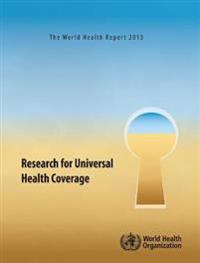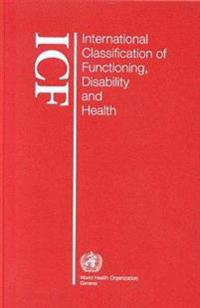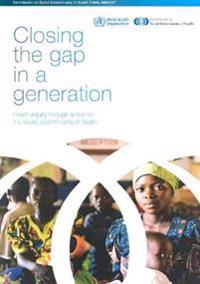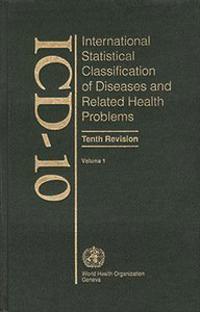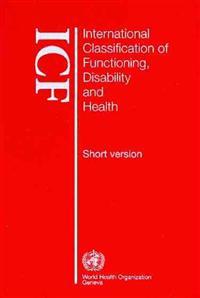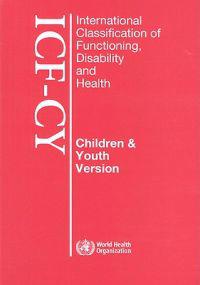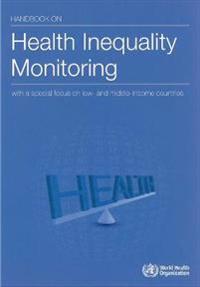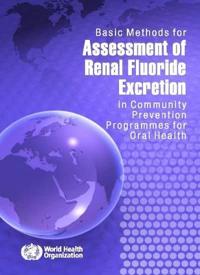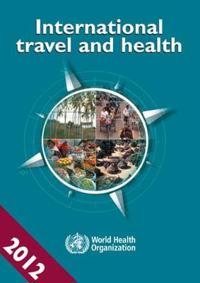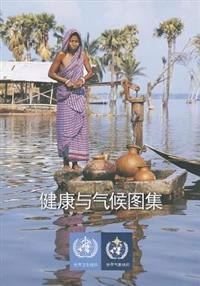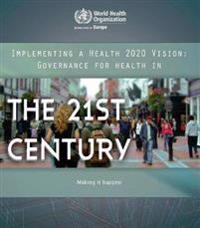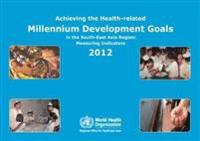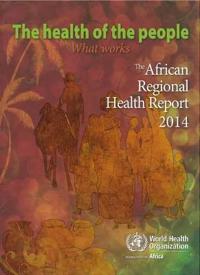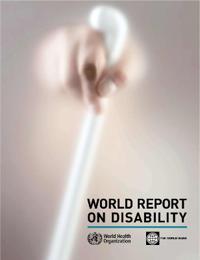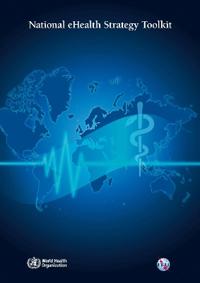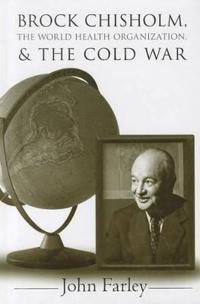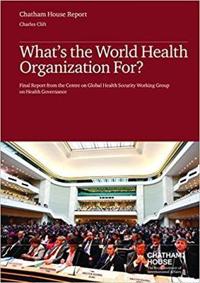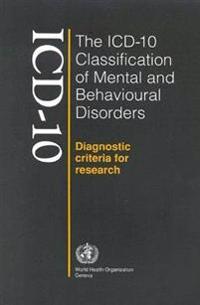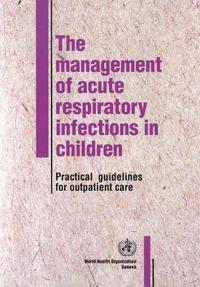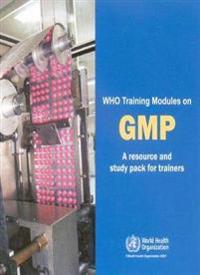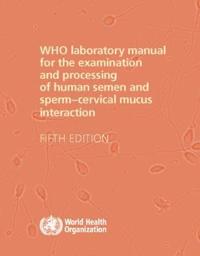World Health Report 2013 (Pocket)
avWorld Health Organization (COR)
ISBN: 9789241564595 - UTGIVEN: 2013-10Everyone should have access to the health services they need without being forced into poverty when paying for them. This report argues that universal health coverage with full access to high-quality services for prevention, treatment and financial risk protection cannot be achieved without the evid[...]
International Classification of Functioning, Disability and Health (Häftad)
avWorld Health Organization, World Health Organization
ISBN: 9789241547413 - UTGIVEN: 200801THIS IS THE LARGE PRINT VERSION OF "ICF" FOR THE VISUALLY IMPAIRED"International Classification of Functioning " (ICF) is a classification of health and health-related domains that provides a standard language for describing how people live with their health condition. It covers body functions and s[...]
Closing the Gap in a Generation: Health Equity Through Action on the Social Determinants of Health (Häftad)
avWorld Health Organization
ISBN: 9789241563703 - UTGIVEN: 200808The Final Report of the Commission on Social Determinants of Health sets out key areas of daily living conditions and of the underlying structural drivers that influence them in which action is needed. It provides analysis of social determinants of health and concrete examples of actions that have p[...]
ICD-10 International Statistical Classification of Diseases and Related Health Problems (Inbunden)
avWorld Health Organization
ISBN: 9789241544191 - UTGIVEN: 1992-07International Classification of Functioning, Disability and Health (Häftad)
avWho, World Health Organization
ISBN: 9789241545440 - UTGIVEN: 200110A pocket-sized version of the publication which describes how people live with their health condition. It is a classification of health-related domains that describe body functions and structures, activities and participation. Domains are classified from body, individual and societal perspectives.[...]
International Classification of Functioning, Disability and Health (Pocket)
avWorld Health Organization (COR)
ISBN: 9789241547321 - UTGIVEN: 2007-11Handbook on Health Inequality Monitoring: With a Special Focus on Low- And Middle-Income Countries (Häftad)
avWorld Health Organization
ISBN: 9789241548632 - UTGIVEN: 2013-11Monitoring health inequality is a practice that fosters accountability and continuous improvement within health systems. The cycle of health inequality monitoring helps to identify and track health differences between subgroups, providing evidence and feedback to strengthen equity-oriented policies,[...]
Basic Methods for Assessment of Renal Fluoride Excretion in Community Prevention Programmes for Oral Health 2014 (Pocket)
avWorld Health Organization (COR)
ISBN: 9789241548700 - UTGIVEN: 2014-08This manual informs about practical procedures in assessment of renal fluoride excretion based on experience from existing national fluoridation programs. The assessment tools will primarily be useful in assisting countries in achieving an effective fluoride exposure. It is a hope that the manual wi[...]
Atlas of Health and Climate (Häftad)
avWorld Health Organization
ISBN: 9789241564526 - UTGIVEN: 2012-11The "Atlas of Health and Climate" is a product of a unique collaboration between the meteorological and public health communities. It provides sound scientific information on the connections between weather and climate and major health challenges. These range from diseases of poverty to emergencies [...]
International Travel and Health 2012 (Pocket)
avWorld Health Organization (COR)
ISBN: 9789241580472 - UTGIVEN: 201205Almost 940 million international journeys were undertaken in 2010. Global travel on this scale exposes many people to a range of health risks--different disease agents and changes in temperature, altitude and humidity are just some of these risks--all of which can lead to ill-health. Many of these r[...]
Atlas of Health and Climate (Häftad)
avWorld Health Organization
ISBN: 9789245564522 - UTGIVEN: 201307The "Atlas of Health and Climate" is a product of a unique collaboration between the meteorological and public health communities. It provides sound scientific information on the connections between weather and climate and major health challenges. These range from diseases of poverty to emergencies [...]
Implementing a Health 2020 Vision (On line)
avWorld Health Organization: Regional Office for Europe
ISBN: 9789289000437 - UTGIVEN: 2013-11The WHO Regional Office for Europe commissioned this report to support the implementation of the health 2020 Framework. It builds on "Governance for Health in the 21st Century," a study conducted for the WHO Regional office for Europe. This report provides policy-makers with examples from around the[...]
Achieving the Health-related Millennium Development Goals in the South-East Asia Region (Häftad)
avWorld Health Organization: Regional Office for South-East Asia
ISBN: 9789290224297 - UTGIVEN: 2013-03Member States of the WHO South-East Asia Region have made considerable efforts at providing an extra surge to their efforts down the road to achieving the targets set by the Millennium Development Goals. Since 2000, these goals have been an important yardstick for the international community to meas[...]
The Health of the People: What Works (Häftad)
avWorld Health Organization
ISBN: 9789290232612 - UTGIVEN: 2015-06This report on the health of the people living in the African Region of the World Health Organization. It reflects a world that has undergone dramatic changes, with Africa as a continent becoming an increasingly important demographic and economic driver of global growth. Rapid economic growth, coupl[...]
World Report on Disability (Pocket)
avWorld Health Organization (COR)
ISBN: 9789241564182 - UTGIVEN: 201108Following the Convention on the Rights of Persons with Disabilities, attention has focused on ways to remove barriers to the participation of people with disabilities in their societies. Now a new publication, the first ever "World Report on Disabilities," produced joinly by the WHO and the World Ba[...]
National Ehealth Strategy Toolkit (Häftad)
avWorld Health Organization, World Health Organization
ISBN: 9789241548465 - UTGIVEN: 201304Worldwide, the application of information and communication technologies to support national health-care services is rapidly expanding and increasingly important. This is especially so at a time when all health systems face stringent economic challenges and greater demands to provide more and better[...]
Brock Chisholm, The World Health Organization, And The Cold War
ISBN: 9780774814768 - UTGIVEN: 2008-05This is the story of a man and an institution. Brock Chisholm wasone of the most influential Canadians of the twentieth century. Aworld-renowned psychiatrist, he was the first director-general of theWorld Health Organization, and built it up against overwhelmingpolitical odds in the years immediatel[...]
World Health Organization
ISBN: 9781108599269 - UTGIVEN: 2019-04According to its Constitution, the mission of the World Health Organization (WHO) was nothing less than the 'attainment by all peoples of the highest possible level of health' without distinction of race, religion, political belief, economic status, or social condition. But how consistently and how [...]
Whataes the World Health Organization for? (häftad)
ISBN: 9781784130206 - UTGIVEN: 2015-09This report investigates the role of the World Health Organization in the international system as it embarks on a programme of reform. It seeks to present the arguments made for reform of the WHO, the various ways this could be done and the obstacles to implementing these reforms.[...]
The ICD-10 Classification of Mental and Behavioural Disorders (Häftad)
avWorld Health Organization
ISBN: 9789241544559 - UTGIVEN: 199301The Management of Acute Respiratory Infections in Children (Pocket)
avWorld Health Organization
ISBN: 9789241544771 - UTGIVEN: 1995-11WHO Training Modules On GMP (Inbunden)
avWorld Health Organization (COR)
ISBN: 9789241547147 - UTGIVEN: 2007-10WHO Laboratory Manual for the Examination and Processing of Human Semen (Pocket)
avWorld Health Organization (COR)
ISBN: 9789241547789 - UTGIVEN: 2009-10Basic Malaria Microscopy (Pocket)
avWorld Health Organization (COR)
ISBN: 9789241547826 - UTGIVEN: 201001

